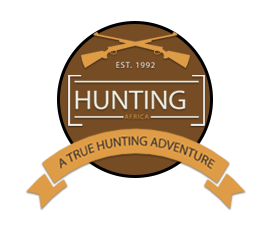Anti-hunting and anti-sustainable use campaigns can spread like wildfire, giving people of various ilk the might to jump on the Facebook, Twitter, and Instagram bandwagons to add their two cents to the matter. If they don’t voice their opinions, they might appear to not have any empathy for the animals, or appear to not be nature lovers. The truth is that most cases these people fall for cleverly constructed stories that tug at the heart strings and strike the right emotional notes.
Social media is the platform where stories are posted and where people believe them, without doing their own research, checking facts, background, context, and consequences. Complex issues are accepted based on the headline alone, skillfully crafted by media (con) artists who can deliver info within 140 characters.
The story of Cecil is a perfect example of this.
Flip the coin, and on the other side of it you get millions of hunters who are apparently too complacent to support pro hunting drives or to engage in countering the numerous anti-hunting messages. They also don’t want to be noticed, for fear of smear attackes or other vitriol from the opposing side. Hunters seem to expect the good news to be delivered by their clubs, complain when they get bac news, or simply stick their heads in the sand to not rock the boat.
Well, with better arguments and science on their side, this has to change.
The New York Times recently posted an article about social media and how its ubiquitousness has created what can be described as something of a shame culture. The author puts it into perspective like this: in a guilt culture, you know whether you are good or bad based on what your conscience feels. In a shame culture you are good or bad based on what your community says about you, judging by whether it honours or excludes you. In a guilt culture, people sometimes feel that they’re doing bad things, but in a shame culture, social exclusion makes people feel bad.
The New York Times article goes on to explain that the world of social media is one constant display in observation. To be embraced and praised by your community is an immense pressure. Being exiled and condemned is what people fear and dread most. In this environment, morality isn’t built on right or wrong, but more on inclusion and exclusion. Traditionally, shame cultures in the world worked differently, and the opposite of shame was honour or “face”, meaning that you were known as a dignified or an upstanding citizen. With today’s shame culture, the opposite of shame means celebrity, meaning attention-grabbing and aggressively unique on social media.
Hunters, until now, didn’t fight this new moral system that the anti-use and anti-hunting spin doctors propagate. Their unfounded claims of moral authority and their views on right and wrong action or behaviour has never been disputed. But instead os staying quiet, we, as hunters, must enage our adversaries in an open and public debate. We should do this, often and consistently. While we’re at it, we should also include more representatives of indigenous people.
The millions of individual hunters should engage anti-hunting activitst. Hunters should broadcast as far and as wide as possible the undisputable facts that underpin good conversation. This can counter the emotionally-loaded anti-use propaganda.
Like our adversaries we, too, must use social media, whether big or small to create campaigns, petitions, and to show our presence on discussions and forums. By showing the world the hard facts, figures, and science of conservation in a way that’s easy to understand, we’ll reach the hearts and minds of people of good will. People who mean will in this world, who rightfully care and advocate for wildlife, need access to the facts and sciences, and they have a right how REAL conservation works in both the remote and not so remote areas of the world. The individuals, like hunters, are concerned about the well-being of the environment. They care for nature and its wildlife.
Yes, it can be unsettling to hear for non-hunters about the killing of animals, but one doesn’t have to like hunting. Even if hunting coincide with someone’s own beliefs, it does not mean that hunting is amoral. It is crucial that hunters utilize each and every oppurtunity to explain the differences between conservation and preservation, as well as the fact that good conservation produces surpluses and that these surpluses produced by nature can and should be harvested.
The whole “hunter vs. non-hunter” situation needs to be changed, as both groups care for wildlife and the places one can find them in. Shane Mahoney, writer for the African Indaba, advocates this, stating that hunters need to take leadership in a conservation coalition to welcome everyone who cares for wildlife to help them understand hunting or accept its contribution to conservation, even if it makes them uncomfortable.
Mahoney adds that hunters should evaluate their own actions in the field to find their own True North; finding a common good to help sustain respected hunting practices that are worth defending, even at the cost of being branded as unpopular or excluded.
If we become complacent by not going out to argue with facts and figures with a strong knowledge AND conviction, we will lose the war. We have better arguments, we care deeply about wildlife and wild space, so it should make sense that we need to involve non-hunters more. This will unite us with most of them.
Teddy Roosevelt once said this:
People don’t care how much you know until they know how much you care.
Both the founder of the National parks movement in the United States and Roosevelt, a great conservationist, he know that hunters does care about the landscapes and the biodiversity of the wild. And, he too, was a hunter all his life.
It is up to us to prove that hunters the world over care for landscape and the animals therein.
